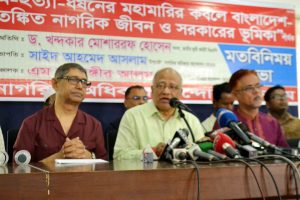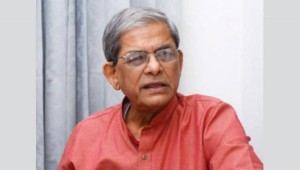Dhaka – As the aviation authority is moving ahead with a Public-Private Partnership (PPP) project for the installation of a multimode surveillance system including radar and other equipment at Hazrat Shahjalal International Airport (HSIA), experts raise eyebrows as they think it will jeopardise national security.
Applications of the entire system which is deemed as the critical component of modern air traffic systems include airport surface surveillance as well as high surveillance updates in terminal and en route to airspace for enabling the functions of automation.
If any private company gets the job to install and operate the surveillance facility, it can put the information security of the airport authority at risk, security exports observed.
The Civil Aviation and Tourism Ministry invited a tender to implement the project under PPP on November 11, 2015 and later extended the deadlines for submission of the tender several times.
The ministry finally extended the deadline up to May 10 this year. It has directed the Civil Aviation Authority of Bangladesh (CAAB) to sign a Memorandum of Understanding (MoU) with the qualified organisation by June, 2016 after concluding the tender processing as soon as possible, sources at the ministry told UNB.
“It’s a top security issue as the radar works as a central trafficking control for all kinds of aircraft –both civil and defence– of home and abroad. If any private company gets the access through the PPP, it’ll put the security at risk,” said security expert Maj Gen (retd) AK Mohammad Ali Shikder.
“If any private company is contracted for the important works of the airport, especially the installation and maintenance of radar, the secrecy and sovereignty of the State may be compromised,” he observed.
Asked about the security concerns over the government’s move to install the radar at Shahjalal Airport under PPP, Brig Gen (retd) M Sakhawat Hossain said he does not think it is a correct decision of the government to hire a private company for installing the radar.
When the country is lagging behind in ensuring the internal security, how can a foreign or private company be trusted with the security measures of an important area like airport, questioned Sakhawat, also a former Election Commissioner.
As the defence aircraft also use the Shahjalal Airport, the authorities need to be more cautious about their decision to set up the radar under PPP. “It shouldn’t be followed considering the existing situation in Bangladesh,” he said.
Civil aviation expert Kazi Wahedul Alam noted that the CAAB has enough fund to modernise the current radar system of the airport and it is not comprehensible why it is going on to update the radar under the PPP.
“I think, radar installation at the airport is a very important thing as it involves national security. But to me, the decision to install it under the PPP is not good at all,” he said.
Contacted, Civil Aviation and Tourism Minister Rashed Khan Menon shrugged off the apprehension of security threat due to the installation of radar under the PPP. “The government has a policy that any project can be implemented under PPP,” the minister added.
“If it’s installed under the PPP, the company that will get the work might operate the radar for a certain period, but the control of the operation will certainly remain with the CAAB,” he said.
The CAAB has decided to install the state-of-the-art radar system at the airport according to the recommendation of International Civil Aviation Organisation (ICAO) and Asia Pacific Air Navigation Planning and Implementation Regional Group as the incumbent radar had been being operated for 30 years.
On April 17, 2012, the CAAB submitted a proposal to the PPP Cell for a project for supply, installation and commissioning of the multimode surveillance system comprising ATC radars (Air Traffic Control radars), ADS-B (Automatic Dependent Surveillance-B) and Wide Area Multilateration (WAM) at the Shahjalal Airport at an estimated cost of Tk 8.48 billion.
Later, an unsolicited bidder quoted the project cost at Tk 900 million (90 crore). But, the price was later increased to Tk 1.90 billion when it was first sent to the cabinet committee on economic affairs (CCEA).
In August 2013, the same unsolicited bidder, ‘Karim Associates’, sent the proposal increasing the cost to Tk 3.30 billion and the CCEA approved it in September that year.
The project period includes 10 years’ technical maintenance of the full system with spare parts, training of 60 controllers, 40 engineers over 10 years and technical upgrading in the eight year of the installation.
The CAAB has also mentioned that it can earn Tk 200 million in 10 years, Tk 7.17 billion in 15 years and Tk 19.73 billion in 20 years.
“Despite having its own enough resources, why should such a financially lucrative project be handed over to a private entity and in whose interest?” questioned a former senior CAAB official.




